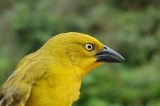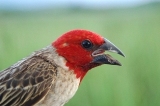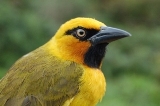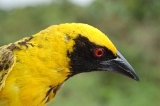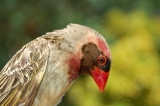White-browed Sparrow Weaver Plocepasser mahali
Taxonomic history
Plocepasser mahali A. Smith, 1836, Rep. Expd. Expl. Cent. Afr.: 51The White-browed Sparrow Weaver was first described in 1836 by Andrew Smith after his trip to the interior. In Smith's type description he gave the locality as 'the country between the Orange River and the Tropic'. In his diary he noted that he first saw the species on 6 December 1834 along the Modder River at c.29 15'S, 26 43'E (Oschadleus HD. 2007. The type-localities of six of Sir Andrew Smith's Ploceidae specimens. Bull. Brit. Orn. Club 127:145-152). In Smith's Illustrations (Smith 1841) he provides the first colour illustration of this species and gave more details about the bird. The first illustration of this species, however, was a line drawing of the head by Swainson 1837b (described in Swainson 1838a)
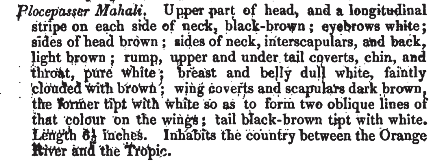
Smith's type description of the White-browed Sparrow Weaver (1836) |
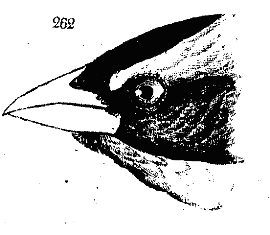
Swainson's illustration of a White-browed Sparrow Weaver (1837) |
Identification, ageing and sexing
Identification: Easily identified by its plumage. There is no no seasonal change in plumage.Sexing: Sexes are alike, but in some populations females have brown (not black) bills.
Ageing: The young bird is similar to the adult, but the bill is a paler pinkish brown. Also the eye is brown in juveniles (red-brown in adults).
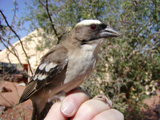
Adult male White-browed Sparrow Weaver |
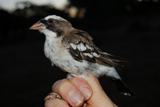
Adult female White-browed Sparrow Weaver |
Where to watch
This species is common throughout its range in Africa. Roosting nests have two entrances below, making escape easy if a predator arrives. On entrance is closed to form a breeding chamber in breeding nests.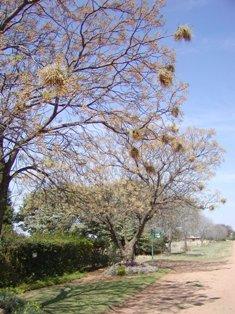
White-browed Sparrow Weaver colony
Add your own White-browed Sparrow Weaver colony - see Weaver Watch project
Maps and records in South Africa
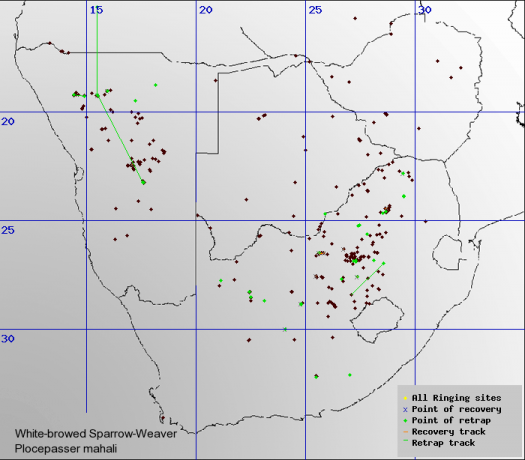
White-browed Sparrow Weaver ringing records and movements in southern Africa (as at 4 June 2009)
Current
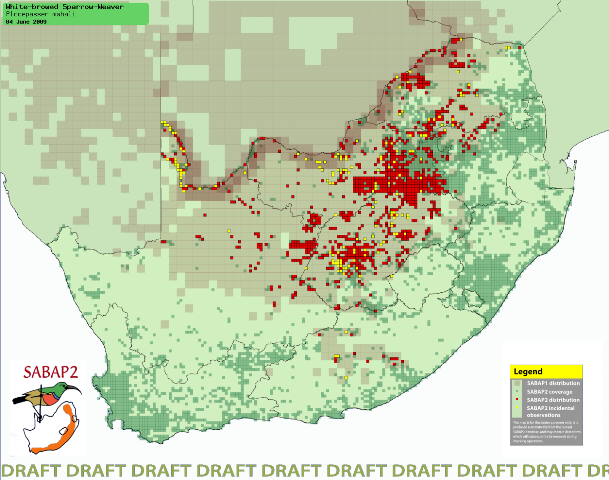
White-browed Sparrow Weaver atlas records in southern Africa (as at 4 June 2009)
Current
